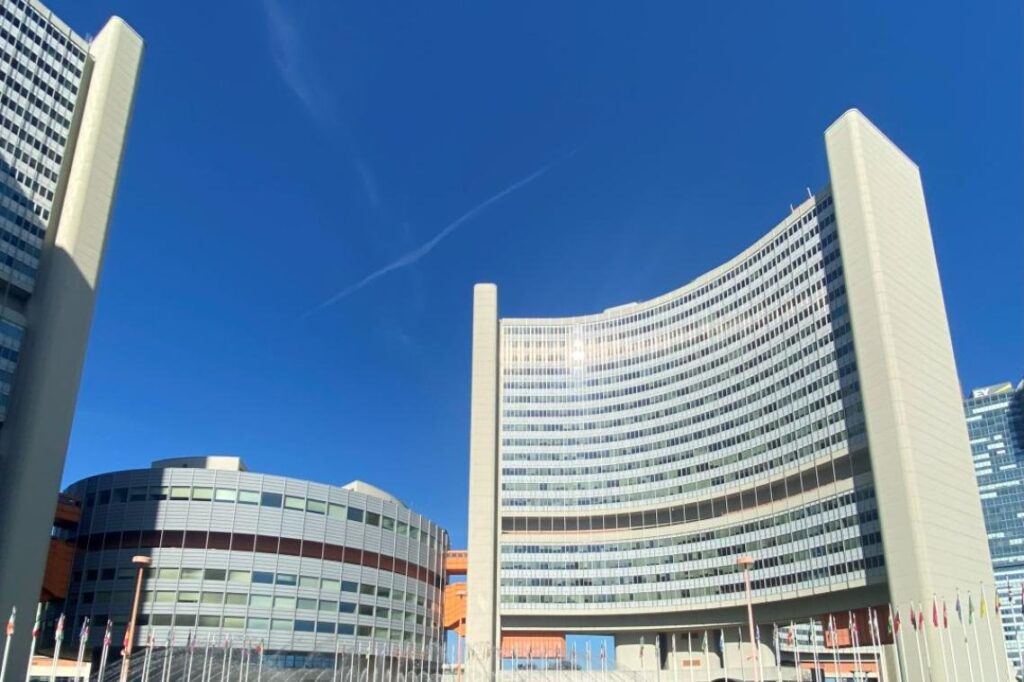
The fight against organised crime has gained momentum as experts from The University of Queensland (UQ) engage with global initiatives. The United Nations Convention Against Transnational Organised Crime (UNTOC), adopted on November 15, 2000, now includes 192 States and the European Union as parties. This framework aims to address the complex nature of organised crime through cooperation and legal standards.
The UNTOC is supported by three specific protocols that tackle trafficking in persons, migrant smuggling, and the illicit manufacturing and trafficking of firearms. Involved in the initial negotiations were UQ’s Professor Andreas Schloenhardt and Professor Susanne Reindl-Krauskopf from the University of Vienna, who reflect on their experiences and the ongoing challenges faced in combatting organised crime.
Insights from the Negotiation Table
Professor Schloenhardt describes the UNTOC as the only international treaty dedicated to combating organised crime. He notes that its establishment came during a period of heightened concern regarding powerful criminal organisations like the Mafia and Colombian drug cartels. The spirit of multilateralism at the time fostered the understanding that a coordinated response was essential to address cross-border issues.
Professor Reindl-Krauskopf, who had no prior experience in diplomatic negotiations, highlights the complexity of reaching consensus during the discussions. “Finding common ground on specific provisions was challenging,” she states. The negotiations required meticulous attention to detail, even debating the placement of punctuation. Such precision is crucial, given the diversity of participating states, each with unique interests.
Current Challenges in Organised Crime
Experts agree that the illicit drug trade remains a significant issue, driven by its enormous scale and profitability. Professor Schloenhardt emphasizes, “The data indicates that both supply and demand for narcotics are rising globally.” The production and distribution of these substances continue to flourish, creating a lucrative market for organised crime.
Migrant smuggling is another pressing concern, with approximately 120 million displaced people worldwide, a number that has doubled in recent years. The lack of safe migration routes, exacerbated by ongoing armed conflicts and restrictive border policies, has intensified the demand for smugglers.
Additionally, the trafficking of illicit goods, including wildlife, firearms, and counterfeit products, poses significant challenges. Professor Schloenhardt explains that all forms of trafficking are driven by consumer demand. When legal avenues for obtaining certain goods are limited, organised crime steps in to fill the gap, often at a premium.
Professor Reindl-Krauskopf points out the critical role of corruption in facilitating organised crime. “Criminal organisations can thrive because of individuals willing to accept bribes,” she asserts. Corruption exists at various government levels, undermining efforts to combat these networks. Without accountability among officials, tackling organised crime becomes increasingly difficult.
Rethinking Strategies Against the Drug Trade
Recent actions by the US military, including strikes on vessels suspected of transporting illegal drugs, raise questions about the effectiveness of current strategies. Professor Schloenhardt criticizes these military operations, stating they violate human rights conventions. “The frustration among governments is understandable, but we must seek more effective solutions,” he asserts.
He highlights the need to reconsider the long-standing “war on drugs,” which has not yielded significant results despite consuming vast law enforcement resources. The increase in drug-related incarcerations and consumption indicates the current approach may be failing.
Professor Reindl-Krauskopf concurs, emphasizing the importance of adhering to human rights principles. “Disregarding these fundamentals can lead to a dangerous precedent,” she warns. The challenge lies in finding a balanced response that respects the rule of law while effectively addressing the complexities of drug-related crime.
As discussions continue about innovative solutions to organised crime, Professor Schloenhardt stresses the importance of promoting the UNTOC framework. “Many countries have yet to fully adopt or enforce the laws established by the UNTOC and its protocols,” he observes. The evolving landscape of organised crime necessitates ongoing adaptation and collaboration to effectively combat these persistent challenges.







